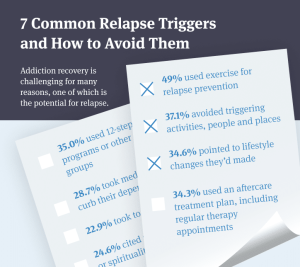How to handle triggers and prevent relapse
Emotional triggers and their influence on relapseOur Centres
Rehab In Northern England

Google Reviews
4
Rehab in Scotland

Google Reviews
5
Rehab in Greater London

Google Reviews
4.5
Rehab in the Midlands

Google Reviews
4

 The signs of mental relapse include thinking about the people and places where you used to use. You might start socialising with friends who used to use. You might fantasise about using and glamorise your past. It becomes harder to make the right choices as the pull of the addiction becomes stronger.
The signs of mental relapse include thinking about the people and places where you used to use. You might start socialising with friends who used to use. You might fantasise about using and glamorise your past. It becomes harder to make the right choices as the pull of the addiction becomes stronger.